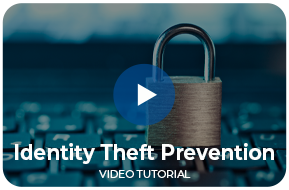Video Tutorials
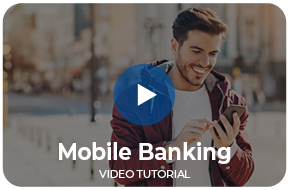
|
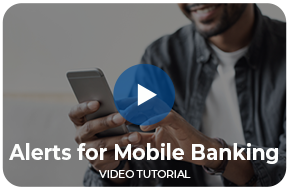
|
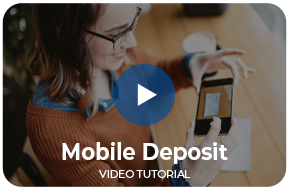
|

|
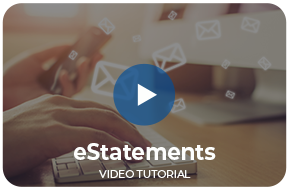
|

|

|
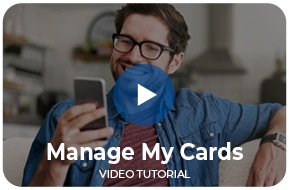
|
|

|
Digital Banking Safety
Learn how to spot the scams!
Elder Fraud Awareness and Prevention
General Security Tips
Remember
- While we may contact you regarding your account or suspicious activities related to your account, BNA Bank will NEVER ask for your online banking log-in credentials or password. We already know your account numbers and your password is secret, even to us.
- You should never give your personal account information, passwords, social security number or any sensitive information out over the phone unless you initiated the call.
- BNA Bank will not initiate an email pertaining to your accounts with us or containing any other sensitive information.
- Please call us if you ever receive a request for personal information that claims to be from us or that concerns you in any way.
- To request your free annual credit report, please visit www.annualcreditreport.com
Security Tips
- ICBA Offers Consumers Mobile Banking Safety Tips
- Simple Steps to Safeguard Your Identity
- Tips to Avoid Becoming a Victim of Identity Theft
- How do I report identity theft, fraud or misuse of my Social Security number?
Helpful Numbers
- FTC's ID Theft Consumer Response Center (877) IDTHEFT.
- Trans Union (800) 680-7289
- Experian (888) 397-3742
- Equifax (800) 525-6285
Tips to Avoid Becoming a Victim of Identity Theft
Manage Your Mailbox
- Do not leave bill payment envelopes clipped to your mailbox or inside with the flag up; criminals may steal your mail and change your address.
- Know your billing cycles, and watch for any missing mail. Follow up with creditors if bills or new cards do not arrive on time. An identity thief may have filed a change of address request in your name with the creditor or the post office.
- Carefully review your monthly accounts, credit card statements and utility bills (including cellular telephone bills) for unauthorized charges as soon as you receive them. If you suspect unauthorized use, contact the provider's customer service and fraud departments immediately.
- When you order new checks, ask when you can expect delivery. If your mailbox is not secure, then ask to pick up the checks instead of having them delivered to your home.
- Although many consumers appreciate the convenience and customer service of general direct mail, some prefer not to receive offers of pre-approved financing or credit. To "opt out" of receiving such offers, call (888) 5 OPT OUT sponsored by the three credit bureaus.
- The Direct Marketing Association offers services to help reduce the number of mail and telephone solicitations. To join their mail preference service, mail your name, home address and signature to:
Mail Preference Service
Direct Marketing Association
P. O. Box 9008
Farmingdale, NY 11735-9008
Check Your Purse or Wallet
- Never leave your purse or wallet unattended – even for a minute.
- Protect your PINs (don't carry them in your wallet!) and passwords; use a 10-digit combination of letters and numbers for your passwords, and change them periodically.
- Carry only personal identification and credit cards you actually need in your purse or wallet. If your I.D. or credit cards are lost or stolen, notify the creditors immediately, and ask the credit bureaus to place a "fraud alert" in your file.
- Keep a list of all your credit cards and bank accounts along with their account numbers, expiration dates and credit limits, as well as the telephone numbers of customer service and fraud departments. Store this list in a safe place.
- If your state uses your Social Security number as your driver’s license number, ask to substitute another number.
Keep Your Personal Numbers Safe and Secure
- When creating passwords and PINs (personal identification numbers) do not use any part of your Social Security number, birth date, middle name, wife's name, child's name, pet's name, mother's maiden name, address, consecutive numbers, or anything that a thief could easily deduce or discover.
- Ask businesses to substitute a secret alpha-numeric code as a password instead of your mother's maiden name.
- Shield the keypad when using ATMs or when placing calling card calls.
- Memorize your passwords and PINs; never keep them in your wallet, purse, Rolodex or electronic organizer.
- Get your Social Security number out of circulation and release it only when necessary — for example, on tax forms and employment records, or for banking, stock and property transactions.
- Do not have your Social Security number printed on your checks, and do not allow merchants to write your Social Security number on your checks. If a business requests your Social Security number, ask to use an alternate number.
- Never give your Social Security number, account numbers or personal credit information to anyone who calls you.
Bank, Shop and Spend Wisely
- Store personal information in a safe place and shred or tear up documents you don't need.
- Destroy charge receipts, copies of credit applications, insurance forms, bank checks and statements, expired charge cards and credit offers you get in the mail before you put them out in the trash.
- Cancel your unused credit cards so that their account numbers will not appear on your credit report.
- When you fill out a loan or credit application, be sure that the business either shreds these applications or stores them in locked files.
- Tear up receipts, bank statements and unused pre-approved credit card offers and convenience checks before throwing them away.
- When possible, watch your credit card as the merchant completes the transaction.
- Use credit cards that have your photo and signature on the front.
- Sign your credit cards immediately upon receipt.
Simple Steps to Safeguard Your Identity
Up to 500,000 individuals are victims each year of identity theft, a fast-growing form of fraud. Fortunately, a few simple steps can help ensure you stay out of these statistics. "Identity theft" or "account takeover fraud" involves criminals stealing a person’s personal information. The crooks assume a person’s identity, apply for credit in his or her name, run up huge bills, stiff creditors and generally wreck the victim’s credit record. At BNA Bank, we put a combination of safeguards in place to protect customers, including employee training, rigorous security standards, data encryption and fraud detection.
You can take these steps to avoid becoming a victim:
- Don’t give your Social Security or account numbers to anyone over the phone unless you initiated the call.
- Tear up receipts, old bank statements and unused credit card offers before throwing them away. Crooks could steal information from your trash and use it to get credit in your name.
- Review your bank and credit card statements as soon as you receive them to check for unauthorized transactions.
- Protect your PINs and computer passwords; use a combination of letters and numbers and change them often. Never carry this information with you!
- Order copies of your credit report once a year to ensure accuracy. Call any of the three national credit reporting agencies: Trans Union (800) 680-7289, Experian (888) 397-3742 and Equifax (800) 525-6285.
- Report any suspected fraud to your bank and credit card issuers immediately so they can start to close accounts and clear your name right away. You may also contact the FTC's ID Theft Consumer Response Center toll-free at (877) IDTHEFT.
By law you are only liable for the first $50 of unauthorized charges against a credit card account. Still, restoring your identity can be a tremendous inconvenience. It's worth your while to exercise a little preventive maintenance. Protect yourself against this terrible crime. For more personal finance tips, visit our Web site at www.bnabank.com or visit the American Bankers Association's Consumer Connection at www.aba.com.
ICBA Offers Consumers Mobile Banking Safety Tips
Washington, D.C. (Oct. 16, 2012)—As mobile banking grows in popularity as a consumer banking service, the Independent Community Bankers of America (ICBA) is offering consumers advice on how to safely use mobile banking so they can be protected while managing their finances.
“Mobile banking, one of the industry’s fastest growing trends, gives our customers flexibility and the chance to manage their finances anytime, anywhere,” said Jeff Gerhart, chairman of ICBA and of Bank of Newman Grove, Neb. “To stay ahead of the demand, community banks are investing millions to secure their banking channels, but consumers need to make informed decisions, while avoiding the scams and schemes that are growing up around this new technology.”
ICBA offers these tips for consumers on the safe use of mobile banking:
- Invest in an antivirus application for your mobile device to help protect you when downloading apps or mobile content.
- Never provide personal identification or banking information over your mobile device unless you initiate the contact and you know that you’re dealing directly with your bank.
- Never share your password, account number, PIN and answers to secret questions. Don't save this information anywhere on your phone.
- Never set the app, web or client-text service to automatically log you in to your bank account. If your phone is lost or stolen, someone will have free access to your money.
- Set the phone to require a password to power on the handset or awake it from sleep mode.
- Remember, your bank would never contact or text message you asking for personal or banking information. Assume any unsolicited text request is fraudulent. Giving this information places your finances and privacy at risk.
- Immediately tell your mobile operator and your bank if you lose your phone.
“Whether they choose mobile, online or in-person banking, our members want to help their customers manage their money safely and wisely,” Gerhart said. “If community bank customers have any questions, they should contact their community banker who can guide them through the mobile banking process for added insight and confidence.”
For more information, visit www.icba.org. To find a community bank, visit ICBA’s community bank locator at www.banklocally.org.
